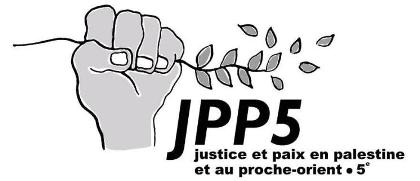6 février 2014
4
06
/02
/février
/2014
00:55
Excerpt: Money and sex aren’t the only things Canadians don’t talk about
By Joseph Rosen • Illustration by Peter Ryan
From the January/February 2014 magazine
Last summer, I went on a canoe trip down the Petawawa River, paddling the same rapids Pierre Trudeau once travelled. In the middle of this iconic Canadian scene, a friend and I started chatting about Israel. As our voices slowly rose, two other canoes approached, and we all put down our paddles for an impromptu summit. Surrounded by and oblivious to the peace and tranquility of Algonquin Provincial Park in central Ontario, we started arguing.
Is a corrupt occupation ruining Zionism? Is boycotting Israel anti-Semitic? Are Israelis guilty of human rights violations? How much responsibility should Palestinians take for their situation?
Our token WASP kept quiet, unable to get a word in, until finally he asked, “How will they ever figure out how to get along in the Middle East? Even the Montreal Jews can’t agree.”
No matter what you say about Israel, someone will get angry. Venturing to question the Jewish state gets you labelled an anti-Semite by right-wing Zionists, but left-wing activists can be just as vicious. Admit that you want Israel to remain a safe haven for Jews, and you’ll be told your Zionism is racist. My Jewish friends are scared of lefties, and my lefty friends are scared of Zionists.
As a lefty Jew, I’m scared of both.
A few years ago, I gave a talk in Los Angeles at the University of California’s Center for Near Eastern Studies, where I spent a semester during a post-doctoral fellowship. I was making the case that Israelis in the occupied territories misuse Holocaust memory when they argue that settling Palestinian land is necessary to guard against a second Holocaust.
A representative of a Zionist watchdog organization showed up, ostensibly to guard against anti-Semitism in Middle Eastern studies departments. When he posted his misunderstanding of my lecture online, I received a series of standard threats from strangers.
One expressed a hope that I would “show [my] sincerity by leading the way to the gas chambers,” while another stated, somewhat ungrammatically, that I was “carrying a death wish for himself.” Within twenty-four hours, my post-doctoral supervisor in Montreal got an email saying I was a “turd” who would “shit his pants” if I was put “on the front lines.”
This entirely accurate insult highlighted an unacknowledged truth: talking about Israel does put you on the front lines. When emotions explode into anger and accusations start flying, you are no longer discussing the conflict. You are a part of it.
My media activist friends have a traditional Marxist theory about why it’s so tough to talk about Israel. For them, it boils down to power, which means money. Zionist money funds lobby groups and media watchdogs that attack the pro-Palestinian media. My friends argue that this creates a climate of antagonism, and that many media outlets systematically avoid the question of Israel because it’s too much hassle to deal with the backlash.
Wait a second. Are my lefty friends saying Jews control the media?
The left has a long tradition of such anti-Semitic clichés. You may recall the scandal in 2004 when the Vancouver magazineAdbusters published an article titled “Why Won’t Anyone Say They Are Jewish?,” which infamously listed “the 50 most influential neocons in the US,” with black dots beside the Jewish names. But keep in mind the watchdog organization that targeted me at UCLA.
There certainly are well-funded Zionist groups that pressure and attack anyone perceived to be critical of Israel.
It is intimidating; one has to think twice before talking publicly or writing about the conflict.
This is because the weapons of this war are not only bullets, stones, tanks, and explosive jackets. The extremists attack and defend with words or, more specifically, with invocations of the Holocaust and accusations of genocide—to the point of absurdity.
Today, almost twenty years after Seinfeld’s Soup Nazi, comparisons with Nazi Germany have become cynical clichés. Palestinians put swastikas on Israeli flags, Israelis compare Arab leaders to Hitler, and Zionist settlers accuse those proposing to withdraw settlements of being complicit in the final solution. Given the number of so-called Nazis out there, you would think Germany had won the damn war.
Debates rage over whether anti-Zionism can be defined as the new anti-Semitism. The Palestinian-driven campaign for Boycott, Divestment and Sanctions attempts to link Zionism and Israel to apartheid-era racism in South Africa.
Since the 1980s, members of Israel’s hasbara programs have used academic, religious, and government resources to teach Zionists rhetorical tactics and ideological strategies to defend Israel against criticism in social media and elsewhere (if you are reading this online, you may hear from them in the comments below). While hasbara translates as “explanation,” this Internet-era “public diplomacy” more often resembles old-school propaganda.
The problem with this linguistic warfare is that it re-entrenches existing positions. Everyone wants to convince, and no one wants to listen.
http://thewalrus.ca/the-israel-taboo/




